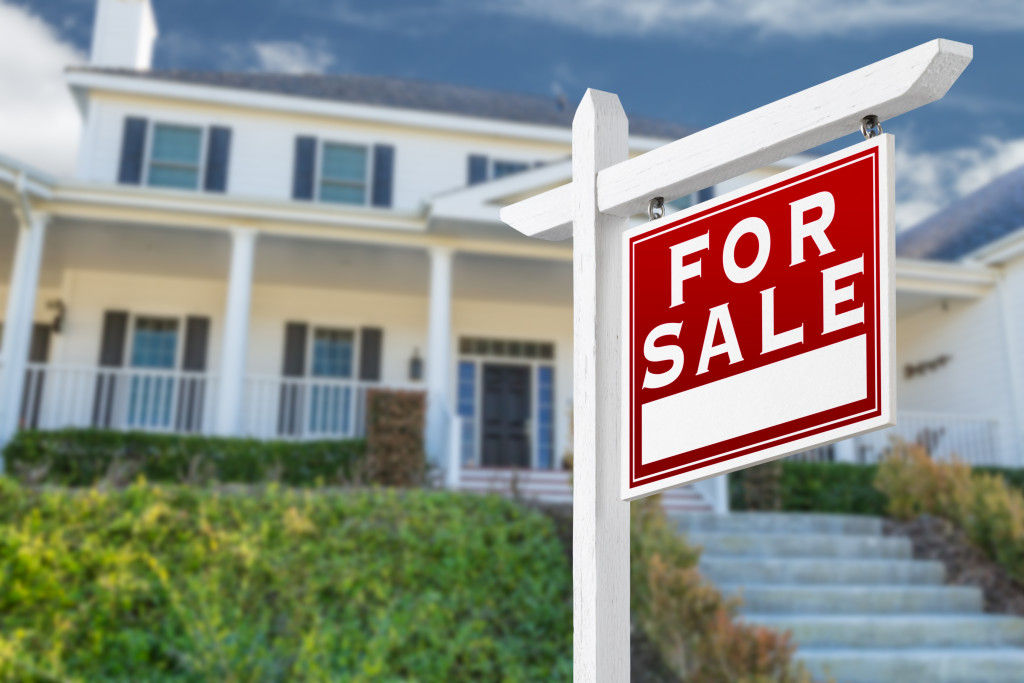A high property value also equates to high taxes, and while no one will celebrate paying a hefty amount for their home’s upkeep, it can actually benefit them in the long run. Right now, the last thing you might have in mind is moving out. Why will you do so when you’re still doting on your home? Why should you even relish the fact you have to pay high taxes for your property? However, the time you want to move out might come, and in this case, it’s always better to have a home with a high value at the ready. You might not want to sell your home right now, but soon, you might want to.
What Determines the Value of Your Home
First off, many first-time homebuyers think that the value of their home lies in its physical structure. But this isn’t at all true. The reality is that a home’s physical structure will only depreciate over time, so the land where it sits proves to be of more value. It’s simply because the land appreciates—the more the population increases, the more the demand for land goes up. Any homebuyers, real estate investors, or home sellers should know this.
What does affect a land’s value, and consequently, your home’s value? Here are some factors to take note of:
The location dictates the value
Three major location factors indicate the value of your home, such as the quality of the schools, nearby employment opportunities, and its proximity to entertainment, recreational, or shopping centers. This explains why some homes in a neighborhood are sold at huge prices while others that are a few miles away from these amenities are sold at much lower prices.
But not all homes in one area have the same value. For instance, let’s compare two homes—one in a cul-de-sac while the other is near a busy roadway. Since the former is located away from traffic and safer for young children, it will be in higher demand.
The size matters more than the structure
The livable space of your home and the size of the land where it sits greatly impact its valuation. Roughly, the value of your land is determined per square foot. The livable or usable spaces are the most important to appraisers and buyers, and these include the bathrooms and bedrooms. At the same time, the attics, garages, and unfinished basements are counted.

Be aware of any future developments
Homeowners or sellers shouldn’t be aware only of the present amenities around their area but also of the prospective municipal and commercial developments in the locality. This includes plans for new public infrastructure, schools, malls, or hospitals.
Consider the local market
Regardless of your home’s location and its present and future amenities, your home’s value will also depend on the number of homebuyers and sellers in the area. When there are more properties for sale than buyers, it’s called “buyer’s market.” On the contrary, if there are more buyers than sellers, it’s called “seller’s market.” Buyers who buy in a buyer’s market have more opportunities to negotiate for a home.
The age and condition are measurements
New homes are considered to have a higher value given that the major parts of the house will remain at their best for a longer time. This is a huge saving for the part of the buyer, which is why most homebuyers prefer homes they can readily move in
Very Simple Ways to Increase the Value of Your Home
Upgrading your home depending on the market you’re in can greatly help increase the value of your home. However, doing so doesn’t require you to break the bank. Here are simple, low-cost ways to increase the value of your home:
Plant a tree
Even if you’re not planning to sell your home in the present, you might want in the future. Planting trees to give shade in the later years can improve the landscape of your home and increase its value.
Do some gardening
Having a garden at your home can significantly add value to your home. In addition, taking care of overgrown weeds and controlling the shrubs can make a big difference. Be sure to give your lawn some mowing, too.
Paint
Painting your home remains to be the most cost-effective improvement of all. Giving your home fresh paint is the closest you can do to keep it looking clean and updated. Choose neutral colors as they are more appealing to many.
With these tips, you can boost the value of your home despite the volatile rate of appreciation. Keep these tips in mind even if you aren’t planning to sell your home yet. When you feel the need to sell your home, you can be confident that it will be worth a tidy sum.

